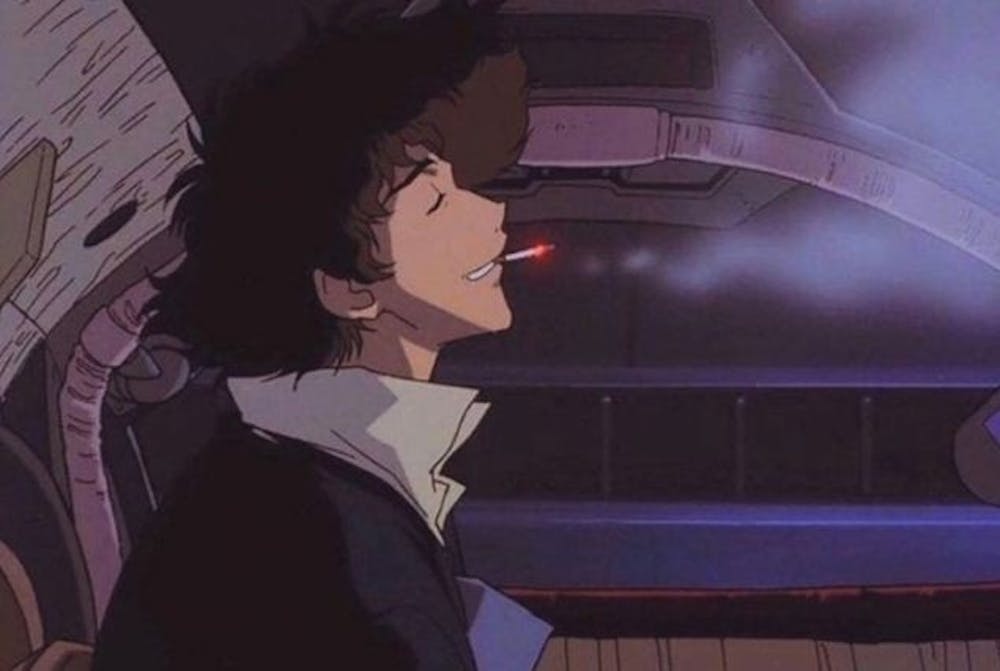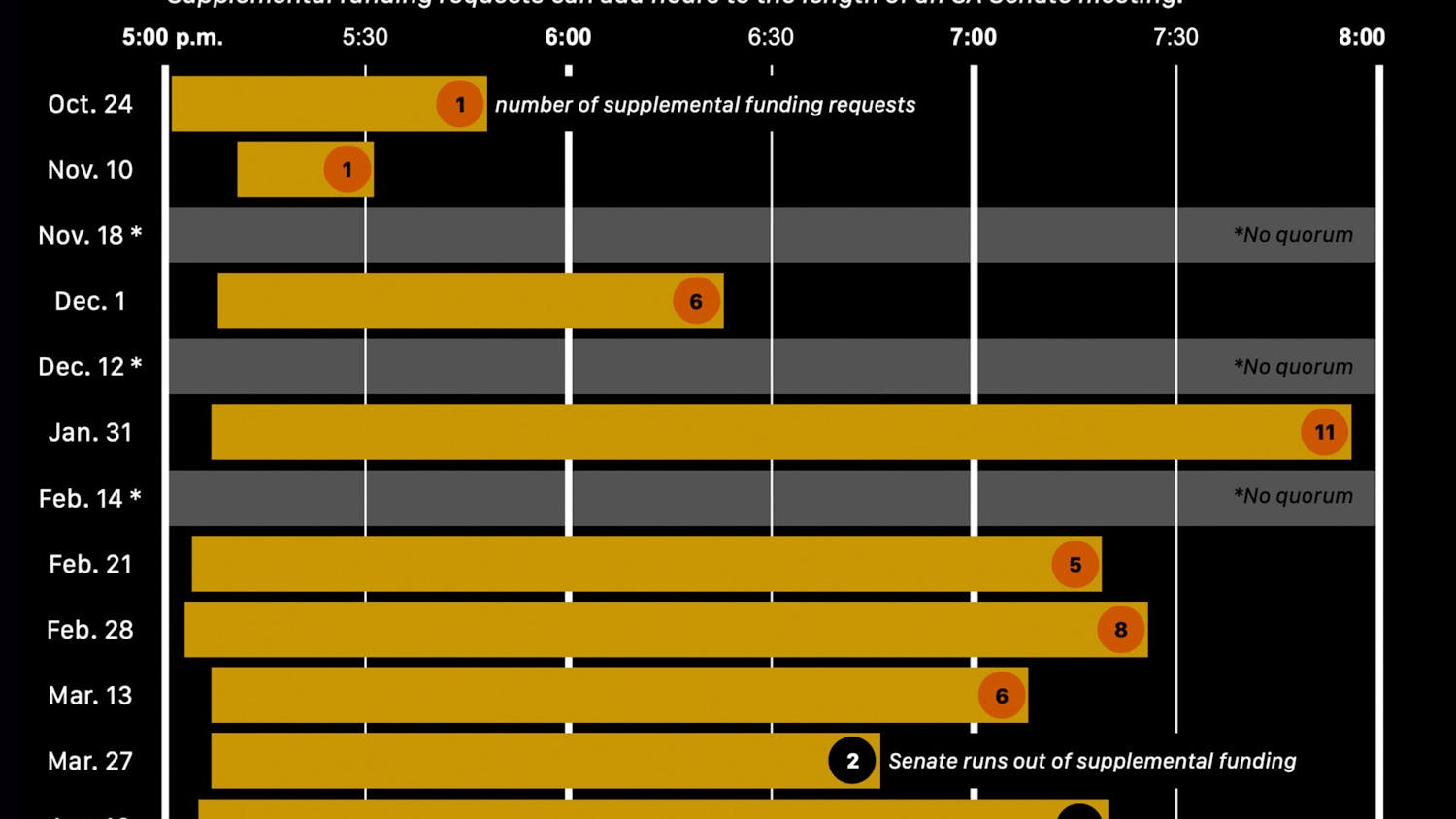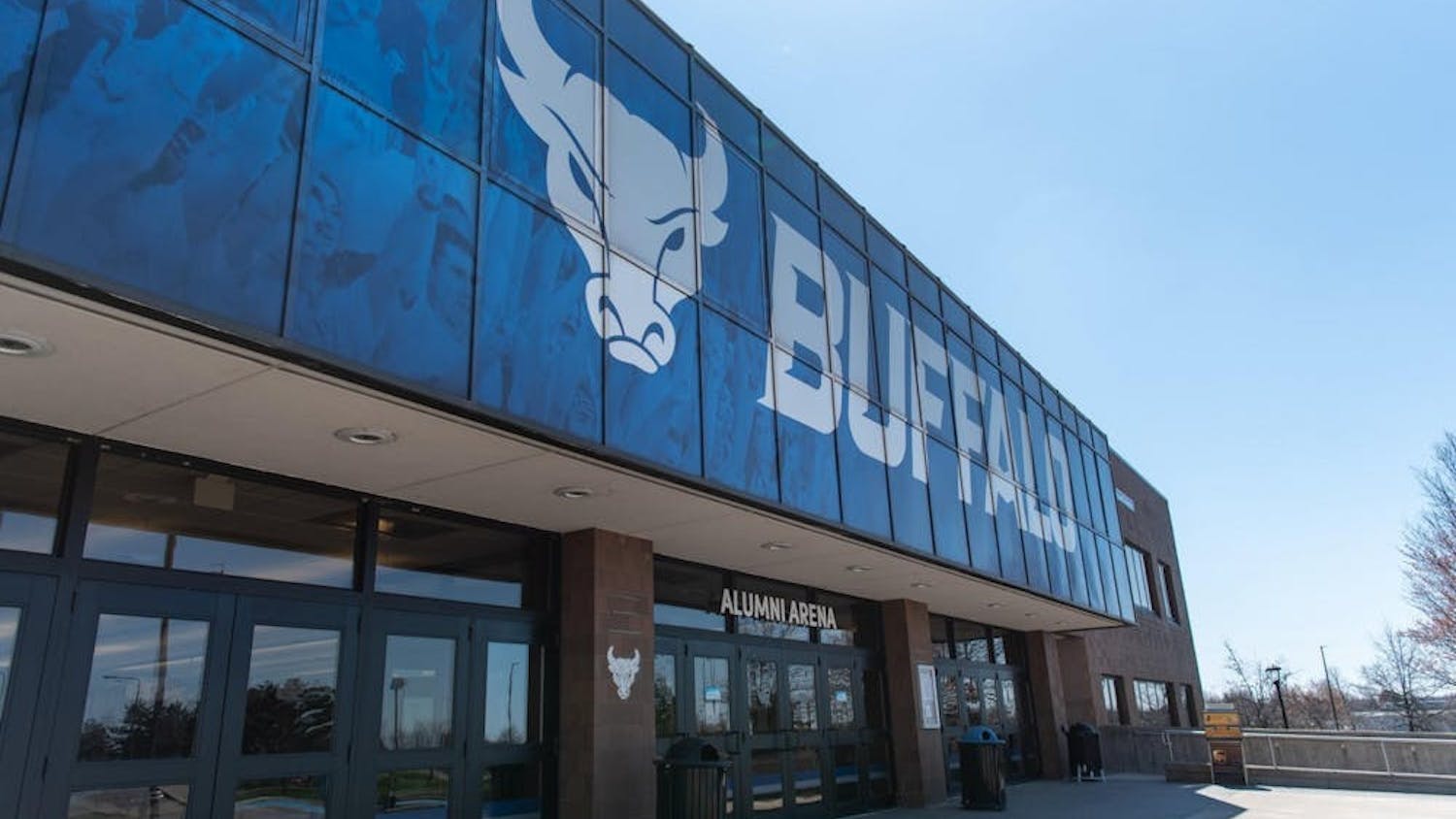Few mediums take their title sequences as seriously as anime. Typically running 90 seconds, these openings have become eponymous with the culture as a whole.
These mini music videos are crucial to setting the stage — sometimes in a most misleading fashion — by displaying characters and moments that (if done right) will perfectly define the series, even if the viewer doesn’t know it yet.
Whether you’re looking for a tale of crime, monsters or romance, The Spectrum’s list of compelling introductions are sure to lock you into your next anime binge:
“Cowboy Bebop” — “Tank!”
“3, 2, 1 let’s jam.”
As these lyrics are uttered, first time “Cowboy Bebop” viewers have no idea what is about to follow: an onslaught of aggressive jazz and colorful silhouettes of Spike, Jet, Faye, Ed and Ein.
The use of “Tank!” by the Seatbelts only adds to the sequence’s excitement with some of the most bombastic jazz ever recorded. With the imagery timed to the beat of the music, culminating in an epic finale, newcomers will be thankful to know that high-quality jazz of this caliber can be heard across the entirety of “Cowboy Bebop’s” 26-episode run.
Perfectly encapsulating the series’ high-octane energy while displaying each member of The Bebop in a particularly aesthetically pleasing fashion, “Cowboy Bebop’s” opening effortlessly sets up the show while casting viewers into the unknown, which gives them a subtle taste of what’s to come.
“Baccano!” — “Gun’s & Roses”
Much in the vein of the introduction to the Guy Ritchie-directed film “Snatch,” “Baccano!’s” opening introduces the series’ whole cast. With each character only given a few seconds of screen time, the writers and artists use their time wisely to make sure they give off the proper first impression, whether it be friendly, cowardly or menacing.
With Paradise Lunch’s “Gun’s & Roses” serving as the sequence’s backdrop, every frame feels expertly crafted, smoothly hinting at character arcs without a single spoiler.
But best of all, the various scenes of vastly different characters and locations showcase the plethora of ideas that are about to be weaved into the epic tale of crime that is “Baccano!”
“Neon Genesis Evangelion” — “A Cruel Angel’s Thesis”
No introduction has ever felt so misleading, yet so fitting.
The introduction of “Neon Genesis Evangelion” is hard not to smile at. With an upbeat song in the form of “A Cruel Angel’s Thesis” and exciting action shots of the many characters — human or not — the unknowing viewer is likely expecting an adventure of action, love and humor.
That is the greatest strength of this introduction.
The smile-inducing sounds and colors of the opening do nothing to prepare the audience for the chaos that befalls each episode. Be it mental trauma or excruciatingly violent fight sequences, “Neon Genesis Evangelion” is an all-too-real tale, not of the heroes imagined in fairy tales, but of the genuinely flawed characters who make up our population. Gone are the teen heroes with unstoppable drive and power. In their place, “Evangelion” features a far more realistic portrayal of how a human teenager would feel if they were humanity’s only hope to fight monsters of epic power: scared, lonely and powerless.
This stark contrast in mood between the show itself and its opening only highlights the desolate feelings shared by its characters.
“Ouran High School Host Club” — “Cherry Blossom Kiss”
“Kiss Kiss, fall in love!”
The first words you hear when watching “Ouran High School Host Club” are so catchy that you just have to sing along to. The lyrics are so compelling that you’ll naturally ignore the quasi-incest of the actual anime (Did we mention it’s rated PG?).
The show, an obvious romantic school comedy, follows the Ouran Host Club, where “the school’s handsomest boys with too much time on their hands entertain young ladies who also have way too much time on their hands.”
The intro perfectly captures the Wattpad-esque writing and the main characters’ immaturity. The line “maybe you’re my love” embraces main character Haruhi’s multiple love interests throughout the show, from a young gang leader to the princely host club president. It may seem cringey at first, but the anime deals with mature situations and has surprisingly progressive views.
Haruhi Fujioka, a “commoner” who tested into the school, is welcomed into the club’s “world of beauty” after breaking a vase worth eight million yen ($72,600). At first, the club mistakes her for a boy and has her pay back the debt as the host club’s “dog.” But as they slowly realize her potential — and her gender — she goes undercover as a host, and entertains other female students to pay back her debt.
If you were a Wattpad kid, or are looking for a fun anime to pass the time with, this is definitely the show for you.
“Ping Pong the Animation” — “Tadahitori”
From the first scream, “Tadahitori” sets the stage for a high-intensity sports anime. The kind of song that would be perfect for one’s cardio playlist, “Ping Pong the Animation’s” opening simply demands attention.
While the anime itself often focuses on steadily growing emotional intensity, “Tadahitori” presents its audience with lightning-paced and in-your-face physical intensity.
Set against the backdrop of “Ping Pong’s” easily recognizable hand-drawn style, “Tadahitori” is just as unique as the artwork itself.
“Beck Mongolian Chop Squad” — “Hit in the USA”
With its catchy chorus and unapologetically 2000s style, “Hit in the USA” is the best earworm an anime opening can offer.
Capturing the spirit of a scrappy band with high hopes, where “Beck Mongolian Chop Squad” lacks luster in animation, it makes up for in its sound.
For an anime focusing on music and the process of forming a band, it delivers in its opening with a song that has potential as an easy radio hit.
One listen, and you too will be singing, “I was made to hit in America.”
“One Punch Man” — “The Hero”
“In exchange for power, maybe I’ve lost something that is essential to being human.”
These words are uttered by main character Saitama, also known as “One Punch Man,” in the first episode of the anime. Throughout the show, Saitama seeks a worthy adversary to rekindle his love for battle — making this line a perfect encapsulation of the show.
“The Hero” balances between the goofiness of the actual anime and the seriousness of Saitama’s situation. The fist that is first shown is often the last sight that Saitama’s enemies see, while in other shots the enemies look into the camera as if facing the viewer. The powerful cinematography puts viewers in both the villain’s and “One Punch Man’s” positions and implies that the viewer will never understand Saitama’s boredom. In almost every scene, Saitama can be found alone, which introduces and alludes to his feeling of loneliness throughout the anime. Overall, the anime and the intro perfectly complement each other in a way no other intro could.
“Samurai Champloo” — “Battlecry”
Only a show this good could get lo-fi Nujabes to head its soundtrack. As the opening notes of “Battlecry” begin, the three protagonists — Mugen, Jin and Fuu — are introduced with exciting shots that display their coolness, but try not to betray too much about them.
Alternating action shots of samurai Mugen and Jin are displayed, backed by lyrics from rapper Shing02 that boast the same intensity as the show. The art style and beat perfectly blend to show the two character’s alternating combat styles.
Shing02’s lyrics are remarkably fitting: “Though my mind’s at peace, the world’s out of order / Missing the inner heat, life gets colder.”
As the lyrics fade on the relaxing beat, the trio is seen walking on their journey, before closing out on a beautiful vinyl.
“Death Parade” — “Flyers”
Giving “Neon Genesis Evangelion” a run for its money in terms of deceptive introductions, “Flyers” presents viewers with a cheery and energetic opening set against an enticing bar filled with tempting gambling games.

“Death Parade” is a Japanese television anime series.
Yet, while the main characters of “Death Parade” seemingly party and perform kickline routines in the opening, the actual anime turns far more psychologically intense as the recently deceased play different games that will determine the fate of their souls.
For a show that can often be heavy, “Flyers” provides much-needed levity and irony for its viewers.
If nothing else, the silly dance moves and colorful sequences will have viewers bobbing their heads and singing, “Everybody put your hands up!”
“Fullmetal Alchemist: Brotherhood” — “Golden Time Lover”
The third opening to the much beloved series, “Golden Time Lover,” perfectly reflects the growing intensity and darkness of “Fullmetal Alchemist: Brotherhood.”
Synth-sounds serve as the increasingly urgent backdrop to main character Edward Elrics’ outstretched arm, as he stands among a field of white flowers as a dark gray sky looms overhead.
The imagery comes full circle as the opening concludes with Edward’s hand crashing to the ground, revealing an uncrushed flower between his fingers.
It’s a bright spot of hope among the chaotic and demoralizing landscape that “Fullmetal Alchemist: Brotherhood” has become at this point in the plot.
As a result, “Golden Time Lover,” is an immaculate representation of this balance between everlasting optimism and perseverance against the corrupt forces of this anime’s world.
Honorable Mentions:
Alex:
“Mushishi” — “The Sore Feet Song”
“Fullmetal Alchemist: Brotherhood” — “Period”
“Fullmetal Alchemist: Brotherhood” — “Rain”
Kara:
“Kakegurui” — “Deal with the Devil”
“Sailor Moon” — “Moonlight Densetsu”
“Demon Slayer” — “Gurenge”
“Fullmetal Alchemist: Brotherhood” — “Again”
Jenna:
“Jujutsu Kaisen” — “Kakai Kitan”
“My Hero Academia” — “The Day, Peace Sign,” “ODD FUTURE,” “Make My Story,” “Polaris & Starmaker”
“Big Windup!” — “Dramatic”
“Haikyuu” — “Imagination,” “Ah Yeah!!,” “I’m a Believer,” “Fly,” “Hikari Are” & “Phoenix”
Kara Anderson is a senior arts editor and can be reached at kara.anderson@ubspectrum.com
Alex Falter is a senior arts editor and can be reached at alex.falter@ubspectrum.com
Jenna Quinn is the senior engagement editor and can be reached at jenna.quinn@ubspectrum.com

Alex Falter is a senior arts editor at The Spectrum.

Kara Anderson is a senior arts editor at The Spectrum. She is an English and Spanish double major and is pursuing a certificate in creative writing. She enjoys baking chocolate chip cookies, procrastinating with solitaire and binging reality TV on the weekends.

Jenna Quinn is the senior engagement editor at The Spectrum. When she’s not scrolling on social media you can find her watching Mets games on her laptop or crushing on Jack Harlow.





